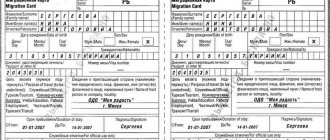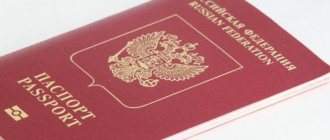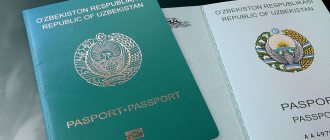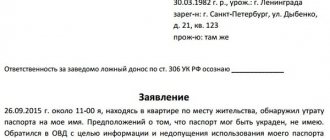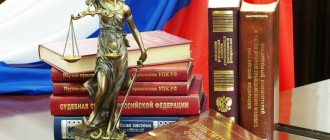Anyone who has dealt with legal issues and regularly worked with documentation knows firsthand about the importance of correctly filling out applications and questionnaires in Russia. Your future success depends on how accurately you complete your application. That is why on numerous legal consulting sites in the Russian Federation, pressing questions are raised every day - what to write in the “citizenship” column in the application form? How can residents of Russia correctly indicate their nationality? What is citizenship in Russia? How to avoid using abbreviations and acronyms?
Thanks to this review you will be able to find out comprehensive information. Correctly filling out the form will be needed in many life situations - obtaining a visa, obtaining citizenship (both Russian and foreign citizenship), joining government agencies of the Russian Federation, and the like. Each of these cases has its own requirements, but in general the principle of filling remains the same.
Rules for filling out the citizenship column in Russia and abroad
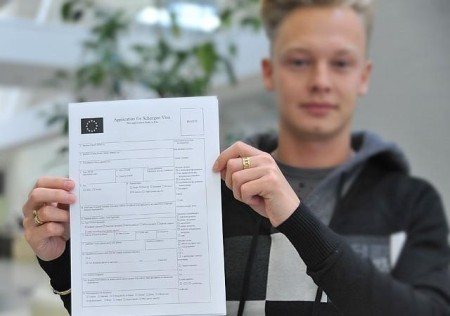
For citizens of the Russian Federation, the box for indicating citizenship often becomes a stumbling block, since it must be filled out correctly, and there is no room for error - the next attempt to submit an application may appear only after a year. This is due to a common mistake - many people confuse the term “citizenship” with the term “nationality”, and as you know, confusion is unacceptable in legal matters.
What is citizenship - a stable legal relationship between a citizen and the state, expressed in the presence of mutual rights, duties and responsibilities.
A citizen of the Russian Federation is a person who has a legal connection with the Russian state, performs certain duties to it (paying taxes, serving in the army, etc.) and has certain rights (the right to life, voting, the right to social security).
So, in the “Citizenship” column you must write the name of the state in the nominative case - “Russian Federation”. You cannot write “Russia” or “Russia”.
Some questionnaires allow the possibility of writing “Russia” in the “Citizenship” column, but “Russian Federation” is the official filling option that will satisfy any, even the most strict, questionnaire checker.
When filling out the application form in English, you will be faced with two sections – citizenship and nationality. We've already dealt with the first one. As for the second, this is where you can talk about your roots. The answer should sound like Russian or Ukrainian. But in no case Russia or Ukraine.
Nuances when filling out
Let’s formulate a list of rules - how to fill out the “Citizenship” column in documents:
- Write the full answer in the field: “Russian Federation”. It is better to refrain from abbreviations, as well as from options like “Russian” or “Russian”.
- If you have another passport besides the Russian one (another citizenship), then you need to write about this in free form under the primary citizenship field, indicate the reason (change of place of residence, ownership of real estate, relatives) and add the details of the second passport.
- Please fill out everything in neat, legible handwriting. If you write unclearly, use block letters.
- If you decide to write “Citizen of the Russian Federation” in the citizenship field, then remember - always write in the masculine gender, regardless of your gender. You cannot fill in the field with the words: “Citizen of the Russian Federation”! Citizen is not a position like teacher/teacher or secretary/secretary. This is your status, and it has only one correct spelling.
In what cases is it necessary to fill out the “Citizenship” column?
When do you need to fill out this column? The answer is far from often, because most organizations do not need to know your citizenship - both you and they are located on Russian territory.
You will definitely see the “Citizenship” column in the following cases:
- When receiving a visa - if you fill out, for example, a Schengen visa, then the column is filled in in English
If you join government agencies (police, Federal Migration Service, FSB and many others), they need to know your citizenship, since only residents of Russia can hold positions in these organizations.
- When obtaining Russian citizenship, if you come from another country, you must indicate which citizenship you already have.
- To obtain a passport
- When receiving a visa - if you fill out, for example, a Schengen visa, then the column is filled in in English.
- In the application form for permanent residence.
- When applying for a job in any large corporations, this is usually done solely for the purpose of collecting data and at the request of the employer.
- In social surveys - if there is such a point.
Features of design in a foreign language
The term “citizenship” in English in the application form means the word Citizenship. Those who, for example, apply for citizenship of this country or are employed by an international company will have to fill out a form in a foreign language. In any case, it is necessary to correctly convey information about yourself, while remembering the difference between the concepts of citizenship and nationality that we have already described.
In the case of nationality, or belonging to an ethnic group, in an English-language document we write Russian, which means “Russian”. According to the rules for filling out questionnaires in a foreign language, it is prohibited to use the combination of letters RF. Any other abbreviations, paraphrases, or variations of Russia or Russian to indicate your nationality are unacceptable.
How can residents of Russia distinguish citizenship from nationality when filling out
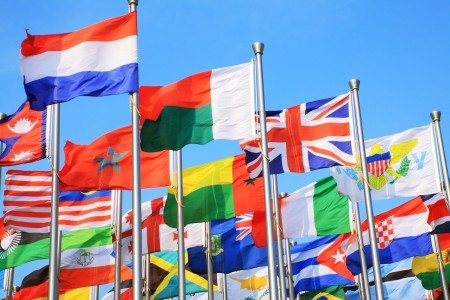
Let's return to the confusion of the terms “citizenship” and “nationality”. Most often, this problem occurs when filling out forms in a foreign language, since in some countries nationality is no different from citizenship. For example, in French both of these concepts have the same name, so confusion cannot be avoided. If you still had to fill out the “nationality” column, you need to enter the word “Russian”. It is Russian, and not Russian, that is very important. If political scientists are to be believed, a new type of passport may soon appear in which nationality will not be indicated. But at the moment such a column exists, and it must be taken into account.
The definition of both concepts is as follows:
- citizenship implies the country of which a particular citizen is a representative;
- nationality is belonging to some ethnic group (Russian, Jew, Moldavian).
One thing you can be 100% sure of - if you see the “Citizenship” column in the application form, you must enter the words “Russian Federation”, but in no case “Russian”.
In standard forms, stress is not recorded, so this issue does not require detailed consideration. If you have recently arrived in Russia and are trying to pronounce such a significant word correctly, you just need to remember that in the word “citizenship” the emphasis is on the second syllable.
In any case, if we are talking about a country that uses the same term to refer to citizenship and nationality, be sure that it is your citizenship and not your ethnic origin that is being referred to.
Citizenship and nationality - what's the difference?
Citizenship is determined by the country of which the applicant is a permanent resident, enjoying all the rights and freedoms provided by the constitution and performing the duties established by the constitution. “Nationality” is a term indicating a person’s membership in an ethnic community. Today, documents with the column “Nationality” are rarely found. In fact, in 2021 there is practically no need to indicate ethnicity on forms of documents of state significance. Although, at the everyday level, there is still a need to indicate one’s belonging to a certain ethnic group (Erzyan, Chuvash, Udmurt, Russian, etc.).
Considering the large flow of foreigners to migration departments and regional EDCs, as exemplified by the queues to submit documents for Russian citizenship in St. Petersburg in 2021, most foreigners know that making a mistake when filling out the application form on their own means more often repeated admission and a time delay.
Therefore, the need to fill out the information correctly is present the first time.
What is the difference between the two concepts?
Let's look at the exact definition:
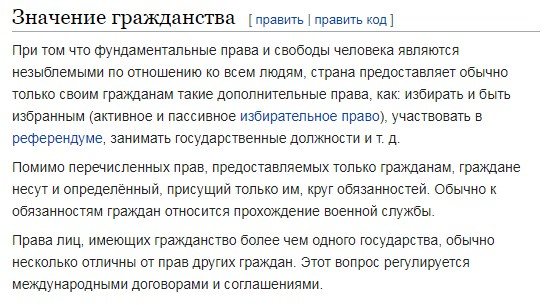
The Federal Law “On Citizenship of the Russian Federation” - N 62-FZ includes rules governing relations related to the status of a Russian citizen.
Article 2 of Federal Law No. 62-FZ determines that issues of citizenship of the Russian Federation are regulated by the Constitution of the Russian Federation, international treaties of the Russian Federation, this Federal Law, and other regulatory legal acts of the Russian Federation.
Article 3 of Federal Law No. 62 introduces the basic concept of citizenship of the Russian Federation - a stable legal connection of a person with the Russian Federation, expressed in the totality of their mutual rights and obligations.
The concept of “Nationality” is defined by the Constitution of the Russian Federation, Article 26; for a more precise explanation, we recommend reading the comments to Article 26. When filling out a questionnaire during the population census, it is necessary to indicate your nationality.
Therefore, you need to write in the column the country/state whose passport the citizen has, i.e. for a Russian it is “Russian Federation”, while the spelling option proposed by some experts as “Russia” is incorrect. If the citizenship and nationality coincide in the form, fill in
- Citizenship – Russian Federation.
- Nationality Russian.
Is it necessary to hire a translator if knowledge of the Russian language is not enough to fill out forms? For foreign citizens, the possibility of writing/filling out forms in English or another language is provided for by Russian legislation.
By the way, a foreigner - a migrant who arrived in Russia for the purpose of residence / long-term stay, in established cases - such as obtaining a patent for work - must pass an exam in the Russian language.
What to indicate in the application form if citizenship has been changed
The following situation can cause no less difficulties. If there was a change of citizenship, information about this must also be indicated.
The following must be described:
- date of change of citizenship,
- Which country was the person previously a citizen of?
- citizenship of which country is currently acquired,
- reason for change.
If the citizenship was changed, then it should be written as follows: “In 2008, the citizenship of Ukraine was changed to the citizenship of the Russian Federation.” If you need to indicate the reason, you can write “In connection with moving to permanent residence in the Russian Federation.”
We indicate “citizenship” correctly
In all documents that require information about the citizenship of the person completing them, it is necessary to use the name of the state of which the applicant is a citizen. This is required by the rules of official business style of speech, including writing. , etc. However, only the name of the country is indicated in the documents. For example, "Russian Federation".
An important rule: when filling out any documents, the use of abbreviations is not allowed. The name of the Russian Federation is often shortened to the abbreviation “RF”. It can be heard from various sources: television, radio, newspapers, including news reports. This is unacceptable in official documents.
Of course, the above rules apply, first of all, to official papers submitted to government agencies. When filling out applications for commercial structures, for example, in connection with applying for a job, the requirements are not so stringent.
What the law says
The official name of the state is defined in the Constitution of the Russian Federation. Yes, Art. 1 of this law states that the names “Russian Federation” and “Russia” are equivalent. In this regard, in official documents where indication of citizenship is required, citizens of the Russian Federation can use both of these names.
This is interesting: How to issue a child’s birth certificate
The concept of citizenship of the Russian Federation is given in the Federal Law “On Citizenship of the Russian Federation”, where such wording is the only acceptable one.
For those born in the USSR
If you were registered back in the years of the USSR in the country where you now live, then you need to adhere to an important requirement: in the “Citizenship” column you must indicate the USSR (USSR).
These norms are enshrined by the Federal Migration Service of the Russian Federation. It does not matter whether a person submits information documents through the Control Center or using the Internet portal of public services.
Exceptions to the rules:
- For France, you must indicate the current name of the country.
- Czech Republic (in the “Country of Birth” section we write RUS, for the “Citizenship at Birth” section – “SUN”).
- Sweden (“Country of birth” – USSR or Russia, depending on what designation is given in the passport).
- When filling out a Schengen application online, you will not find the USSR in the list of states. In this case, the choice is made in favor of the state where the person currently lives.
Sample of filling out citizenship

As a sample, it will be useful to consider the most popular and frequently filled out official papers. These are the “Application for issuing a work permit to a foreigner” and “Application for a visa”.
In the application for a working patent, there are special fields in which information about personal data, including the nationality of the applicant, is entered letter by letter. Only Russian words and letters are used. Two or more words are separated by a space, which is one blank field.
To fill out an application for a Schengen visa, a standard form is used, the information in which must be entered in English. The paragraph “On citizenship” that interests us is filled out in accordance with international requirements, which involve writing the full name of the geographical entity, in our case - Russian Federation. At the same time, for persons born in Russia before 1991, in the “citizenship by birth” column, you must indicate a country that does not exist today - USSR. For Russians younger than the specified year, both columns will contain the phrase in English - Russian Federation.

Having two or more passports
What to do and what to write if a person has two citizenships? In this case, dual citizenship is entered into the application form if there is a special column for this. You will also need to provide your passport information.
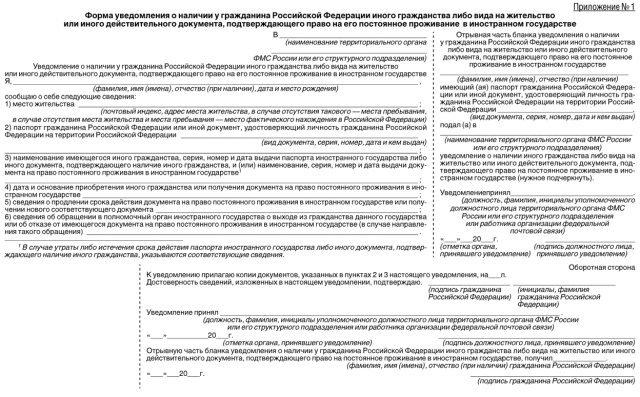
Today Russia has concluded an agreement on dual citizenship only with Turkmenistan and Tajikistan. There was a similar project with Ukraine, but it was not brought to its logical conclusion. Russians cannot obtain dual citizenship with any other country in the world, so you are unlikely to derive any benefit from it.
By the way, which syllable should be emphasized in the word “citizenship”? In standard forms, stress is not recorded, so this issue does not require detailed consideration. If you have recently arrived in Russia and are trying to pronounce words correctly in Russian, you need to remember that in the word “citizenship” the stress is placed on the second syllable.
What do errors in filling out entail?
When filling out official documents submitted to government agencies, it is unacceptable to have any errors. Therefore, if the column discussed in this article is filled out incorrectly, this may lead to a refusal to consider the application or questionnaire , which is fraught with additional loss of time and money.
If you make mistakes when filling out foreign forms, the consequences may be the same. For example, applications for visas from a number of countries must be filled out as accurately and reliably as possible. Errors in them may result in refusal to issue a visa.
What to do if a mistake is made
If you tried to fill out everything correctly, but ended up providing incorrect information in one item or another, then we suggest you study the stages of your further actions:
- Stop being nervous, panicking and pull yourself together.
- Find an employee at the embassy who speaks Russian well enough.
- Don't be afraid to ask for help from the person who works with you.
- Tell him about your problem with writing the questionnaire.
- The employee will give you a new copy in Russian, or you will receive a form in English, but with an explanation of what exactly needs to be entered in this or that item.
Important! Almost every visa center has specially trained personnel who provide services for filling out the visa questionnaire for the applicant, which completely eliminates the possibility of error.
However, this service is an additional option and its cost ranges from 400 to 900 rubles for each applicant, depending on which country the VC belongs to. If you don’t want to spend extra money, the employee will always be able to tell you what to write in the citizenship column.
Helpful information
Please note that it is important to know not only how citizenship is written correctly in the application form, but also how this document is filled out in general. There are several rules that must be followed in order not to spoil the form:
- The typeface must be in block letters only. If you do not want any misunderstandings, write all information in legible block letters of the Russian alphabet.
- Eliminate abbreviations and abbreviations. They will be a serious mistake and your document will simply not be accepted.
- If you are the happy owner of a second citizenship in another state, you should definitely report this.
- The same applies to situations where you previously had a different nationality. In the application form, you will be expected to clearly explain when and for what reason you refused it.


